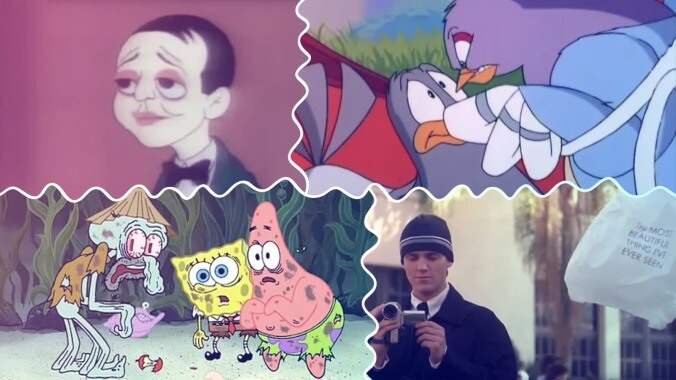What pop culture did you first encounter from a parody?

Looney Tunes’ Peter Lorre (YouTube), Animaniacs’ Goodfellas (YouTube), SpongeBob SquarePants’ Lord Of The Flies (YouTube), Not Another Teen Movie’s American Beauty plastic bag (YouTube), Graphic: Rebecca Fassola
This week’s question comes from reader Gonzalo Perez-Garcia:
“What pop culture phenomenon were you introduced to through the parody/satire of it? I watched at least two of SNL’s The View skits with Cheri Oteri’s Barbara Walters before I realized that it was based on an actual show that existed on TV, not just a silly idea the SNL writers came up with on their own. Likewise, a friend of mine in college saw Mafia! before she had ever seen The Godfather. When I finally made her and two other girls watch The Godfather, she was laughing at certain scenes because now the analogous parody scenes in Mafia! suddenly made sense to her.”
